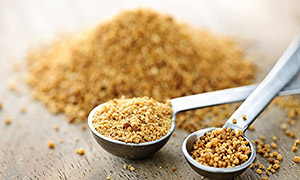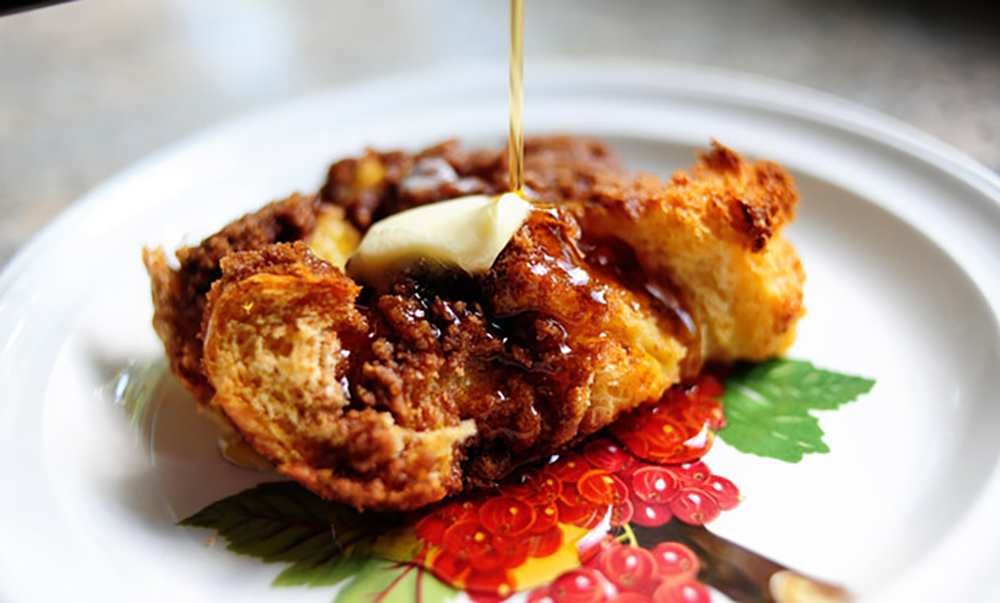The Original Natural Sweetener
Pure Maple Syrup is a “natural” food, processed by heat concentration of pure maple sap, which is the nutrient liquid utilized by the plant for the annual growth of its tissues. Our maple syrup is available in all grades, natural and organic, and a variety of sizes.
Sugars
 Sugars are an important source of energy. The main sugar in pure maple syrup is sucrose, which is the sole sugar in the Grade A Light Amber and Grade A Golden Color Delicate Taste grade syrups. The darker grades of syrup contain a small and variable amount of fructose and glucose. In order of sweetness, sucrose is less sweet than fructose, but sweeter than glucose.
Sugars are an important source of energy. The main sugar in pure maple syrup is sucrose, which is the sole sugar in the Grade A Light Amber and Grade A Golden Color Delicate Taste grade syrups. The darker grades of syrup contain a small and variable amount of fructose and glucose. In order of sweetness, sucrose is less sweet than fructose, but sweeter than glucose.
Maple syrup caloric value is 52 calories per tablespoon, molasses 40, corn syrup 60 and honey is 45. With a glycemic index of 54, maple syrup is considered a low glycemic product, which means it affects blood sugar to a lesser degree than sugar (GI 58) or honey (GI 87). (source: Summary of Health Benefits of Pure Maple Syrup: Summary of Information Compiled by the International Maple Syrup Institute.
Minerals
Minerals have specific and nonspecific nutritional functions in the body metabolism. In pure filtered maple syrup, the main minerals present are: potassium, calcium, magnesium, sodium, zinc, manganese, phosphorus, iron, and selenium.
| Per 60 ml (1/4 cup), in % DV | Maple Syrup | HFCS | Honey | White Sugar | Brown Sugar |
| Manganese | 100 | 4 | 3 | 0 | 9 |
| Riboflavin | 37 | 4 | 2 | 1 | 0 |
| Zinc | 18 | 0 | 2 | 0 | 1 |
| Magnesium | 7 | 0 | 1 | 0 | 7 |
| Calcium | 5 | 0 | 0 | 0 | 5 |
| Potassium | 5 | 0 | 1 | 0 | 6 |
| Calories | 200 | 220 | 261 | 196 | 211 |
Oxygen Radical Absorbance Capacity (ORAC) Value of Maple Syrup
| ORAC Value per 100g | µmol TE²/100g | Serving size | µmol TE²/serving |
| Broccoli, raw | 1362 | 1 medium (118 g) | 1037 |
| Banana, raw | 879 | ½ cup (46 g) | 627 |
| Carrot, raw | 666 | 1 (72 g) | 480 |
| Maple Syrup | 600 | ¼ cup (60 ml/80 g) | 480 |
| Cabbage, raw | 508 | 1 medium (123 g) | 415 |
| Tomato, raw | 337 | ½ cup (85 g) | 268 |
| Cantaloupe | 315 | ½ cup (37 g) | 188 |

Percent Daily Value (DV), based on a 2,000 calorie diet:
- Total Fat 0g 0%
- Cholesterol 0mg 0%
- Sodium 5mg 0%
- Protein 0g 0%
- Total Carbohydrate 53g 18%
- Sugar 60g
- Dietary Fiber 0g
- Vitamin A 0%
- Vitamin C 0%
- Calcium 8%
- Iron 8%
Based on an average intake of 130 g/day refined sugars and the antioxidant activity measured in typical diets, substituting alternative sweeteners could increase antioxidant intake an average of 2.6 mmol/day, similar to the amount found in a serving of berries or nuts. (1)
